Skopje is the capital and largest city of Macedonia, a country located in southeastern Europe.
The city has a long and rich history, with influences from various cultures and civilizations.
It is known for its relatively low cost of living compared to other European cities, and it has a growing economy with many job opportunities in various sectors.
Skopje is also a great place for those who love nature, with its beautiful natural surroundings, outdoor recreation opportunities, and protected areas.
In addition, the city has a well-developed transportation system, including a public transportation network of buses and trolleybuses, as well as a modern airport that connects the city to other destinations in Europe.
Overall, Skopje is a great place to live, with its affordable living, rich history and culture, access to nature, good transportation, and growing economy.
We’ll talk about the above and more in this detailed article highlighting the best things about living in Skopje below.
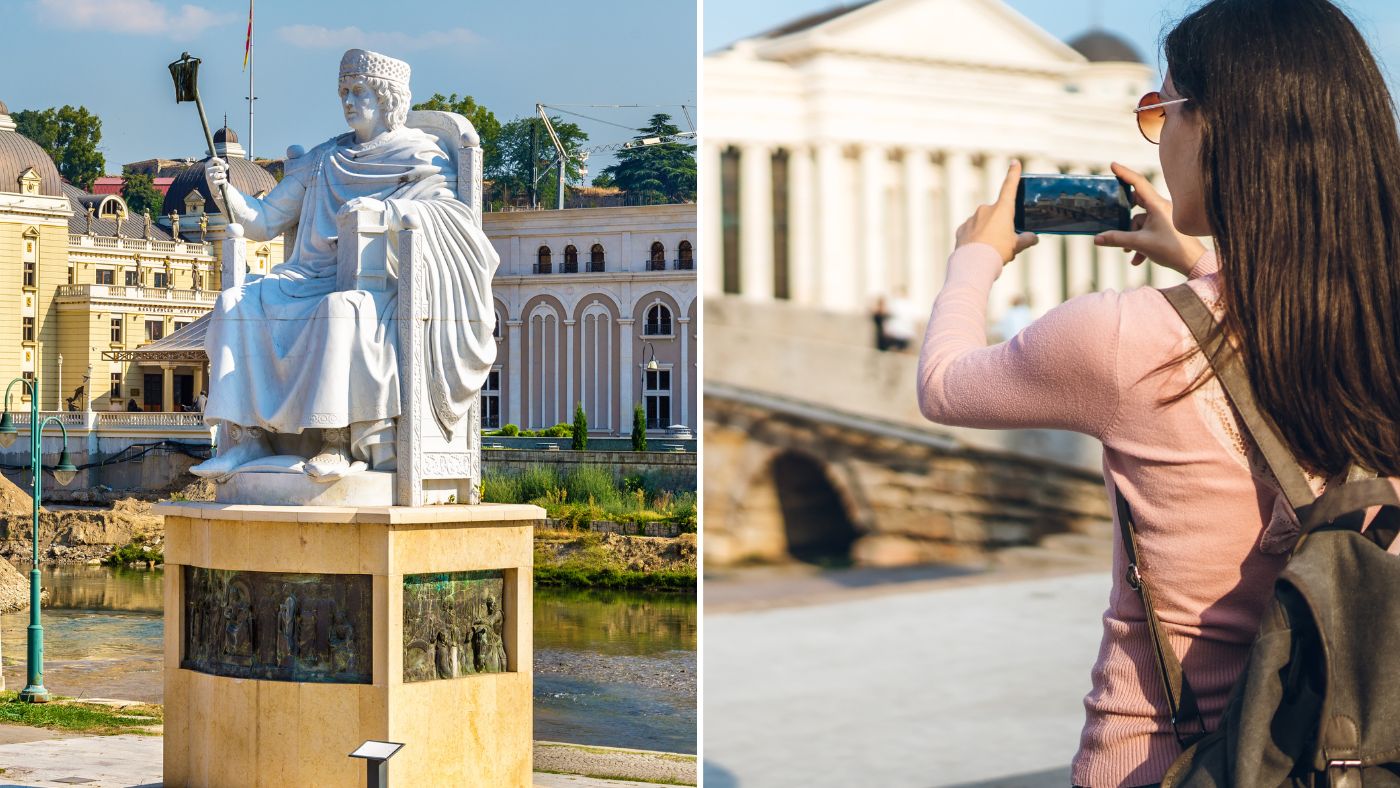
Affordable Living:
Skopje is known for its relatively low cost of living compared to other European cities.
This makes it an attractive place to live for those looking to stretch their budget.
Skopje is known for having a relatively low cost of living compared to other European cities.
The cost of living in Skopje will depend on various factors such as your lifestyle, the neighborhood you choose to live in, and the type of accommodation you are looking for.
Here are some general estimates of the cost of living in Skopje:
Accommodation:
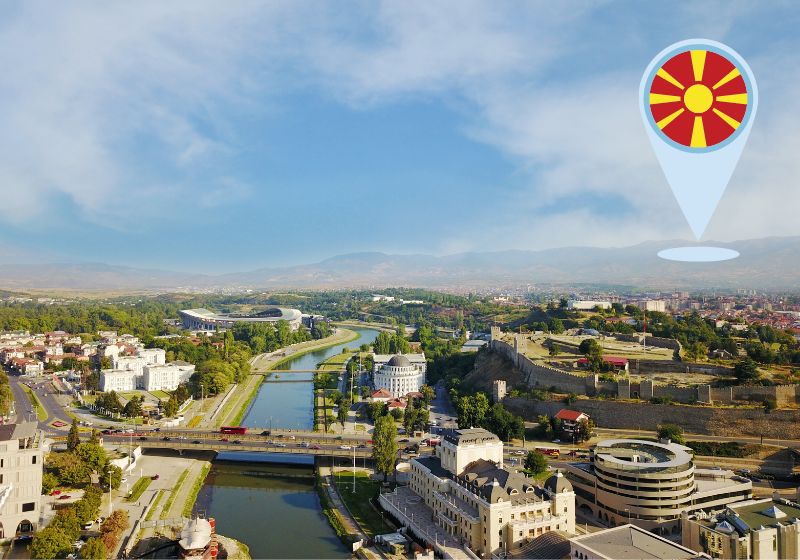
Renting an apartment in Skopje can be relatively inexpensive, with prices starting at around 400 EUR per month for a one-bedroom apartment in the city center.
The cost of rent will depend on the location, size, and condition of the apartment.
Food:
The cost of food in Skopje can vary depending on where you shop and what you buy.
Basic groceries such as bread, milk, and eggs are relatively inexpensive while dining out at restaurants can be more expensive but still relatively cheap.
Transportation:
Public transportation in Skopje, including buses and trolleybuses, is relatively inexpensive, with fares starting at around 0.50 EUR per ride.
Gasoline is also relatively inexpensive, with prices starting at around 1.50 EUR per liter.
Entertainment:
Skopje has a wide range of entertainment options, including movie theaters, bars, clubs, and cultural events.
The cost of entertainment will depend on the specific activity and venue you choose.
| Expense | Cost (EUR) |
|---|---|
| One-bedroom apartment in city center | 400+ |
| Basic groceries | 20-50 per week |
| Dining out at restaurants | 20-30 per person |
| Public transportation (bus or trolleybus) | 0.50 per ride |
| Gasoline | 1.50+ per liter |
| Movie ticket | 5-10 |
| Cultural event | 10-30 |
Its Rich History and Culture:
Skopje is a city with a long and rich history, with influences from various cultures and civilizations.
Here are some highlights of the rich history and culture of Skopje:
Ancient history:
Skopje has a long history that dates back to at least 4000 BC when it was settled by Illyrian tribes.
The city has been conquered and ruled by a number of different civilizations over the centuries, including the Romans, Byzantines, and Ottomans.
Cultural and religious diversity:
Skopje has a diverse population with a mix of different cultures and religions, including Macedonian, Albanian, Turkish, Roma, and Serbian.
This diversity is reflected in the city’s cultural heritage, which includes a mix of traditional and modern influences.
Landmarks and museums:
Skopje is home to many historical and cultural landmarks, such as the Kale Fortress, the Stone Bridge, and the Museum of Contemporary Art.
The city also has a number of museums and galleries that showcase its rich history and culture, including the Archaeological Museum of Macedonia and the Skopje City Museum.
Festivals and events:
Skopje hosts a number of festivals and events throughout the year that celebrate its history and culture, such as the Skopje Summer Festival and the International Children’s Festival.
These events provide opportunities for people to learn more about the city’s history and culture and to participate in a variety of cultural activities.
Access to nature:
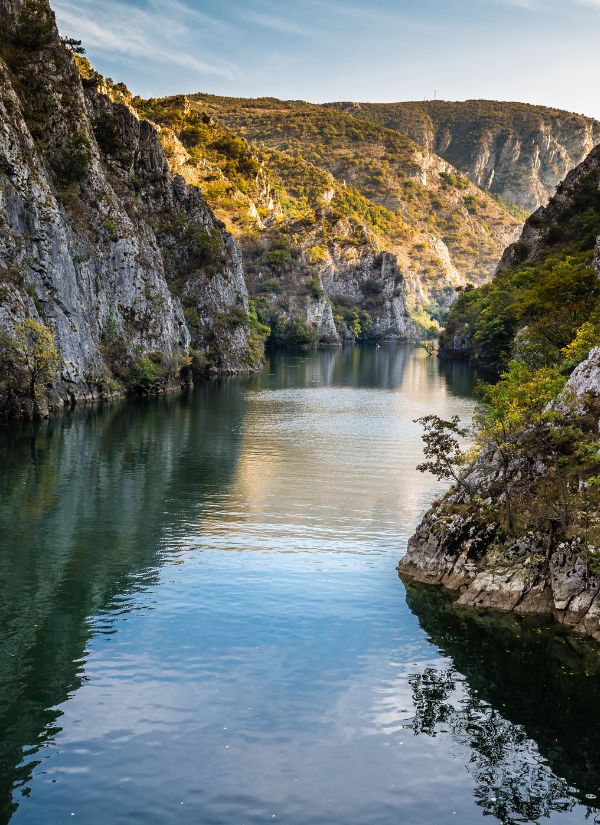
Skopje is located in a valley surrounded by mountains, which makes it a great place for people who enjoy nature.
The city has a number of parks, gardens, and natural areas that provide opportunities for outdoor recreation and relaxation.
Outdoor activities:
Skopje is a great place for outdoor activities such as hiking, biking, and skiing.
The city is surrounded by beautiful natural areas, including the Vodno Mountain, the Matka Canyon, and the Gazi Baba Forest, which offer a variety of trails and paths for outdoor enthusiasts.
Clean air and scenic views:
The city’s location in a valley surrounded by mountains provides clean air and scenic views, albeit not during the Winter months when the city gets too polluted.
The natural beauty of the surrounding landscape can be enjoyed from various points in the city, including the Kale Fortress and the Stone Bridge.
Consider taking a ride up to Mount Vodno and the Millenium Cross for some breathtaking views away from the city’s hustle and bustle.
Nature reserves and protected areas:
Skopje is home to a number of nature reserves and protected areas that are home to a variety of plant and animal species.
These include the Pelister National Park, which is home to the rare Molika pine, and the Mavrovo National Park, which is home to a variety of bird species.
Good transportation:
Skopje has a well-developed transportation system that includes a public bus and trolleybus network and a modern airport that connects the city to other European destinations.
Here are some highlights of Skopje’s transportation system:
Public transportation:
Skopje has a public transportation network that includes buses and trolleybuses.
The city also has a number of taxi companies that provide transportation services.
Fares for public transportation start at around 0.50 EUR per ride and tickets can be purchased onboard the vehicles or at kiosks located throughout the city.
Roads and highways:
Skopje has a well-developed network of roads and highways that connect the city to other parts of the country and to neighboring countries.
The city is located at the crossroads of several major European routes, including the E75 and E65 highways.
Airport:
Skopje has a modern airport, the Skopje Alexander the Great Airport, which is located about 20 kilometers from the city center.
The airport offers regular flights to destinations in Europe and beyond.
Growing economy:
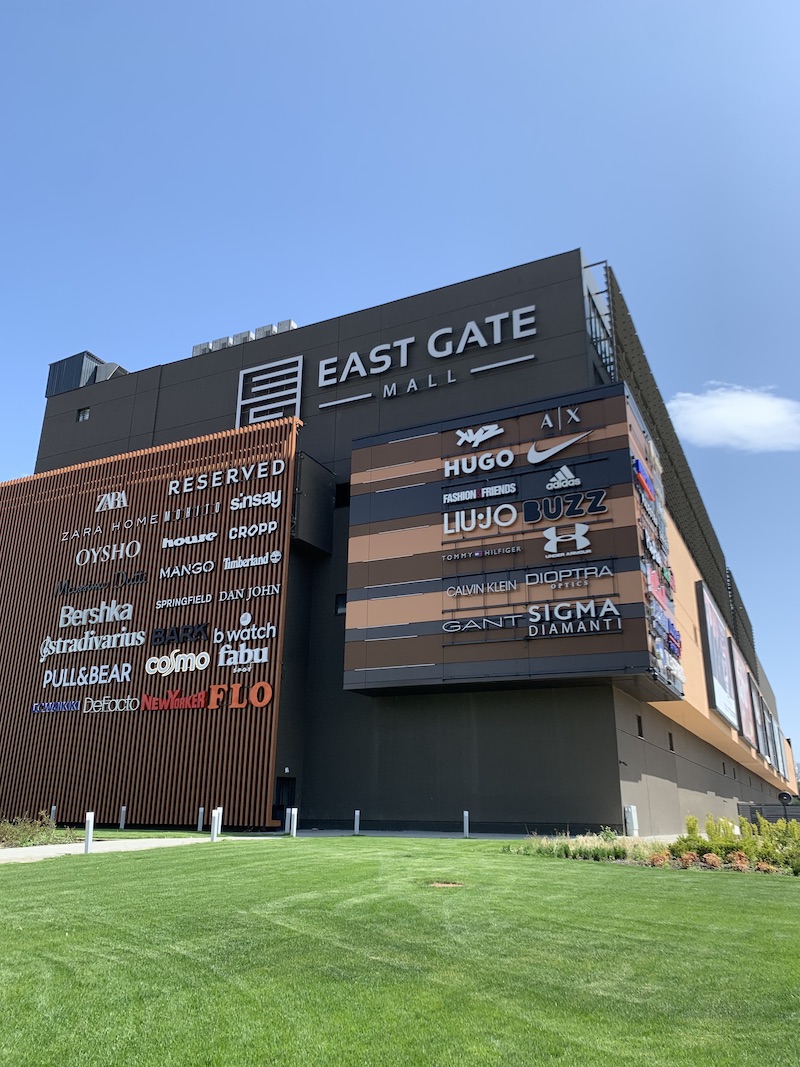
Skopje is the capital of Macedonia and thus, is an important economic and cultural center in the country.
The city has a growing economy with a diverse range of industries, including manufacturing, finance, and tourism.
Here are some more details about Skopje’s growing economy:
Manufacturing:
Skopje has a well-developed manufacturing sector, which includes a number of large industrial enterprises that produce a variety of products, including textiles, chemicals, and metal products.
The city is also home to a number of small and medium-sized enterprises that produce a range of products, including food and beverages, furniture, and clothing.
Finance:
Skopje has a well-developed financial sector, with a number of banks, insurance companies, and other financial institutions based in the city.
The city is also home to a number of international financial companies that have operations in Macedonia.
Tourism:
Skopje is an important tourist destination in Macedonia, with a number of attractions, including historical and cultural landmarks, natural beauty, and a variety of dining and entertainment options.
The city’s growing tourism industry provides a range of job opportunities, including in the hotel and hospitality sector.
Informational Technology (IT):
Skopje is home to a number of IT companies that provide a range of services, including software development, web design, and IT consulting.
The city is also home to a number of research institutes and centers that contribute to the development of new technologies.
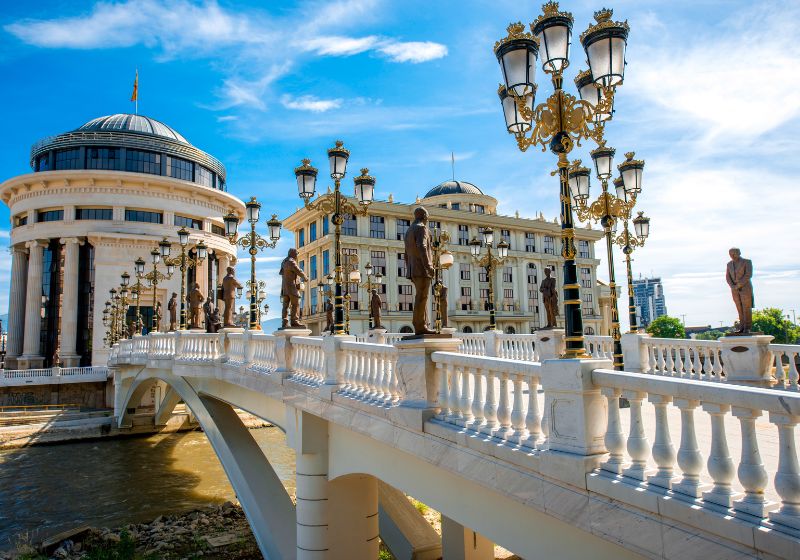
Would it be easy to find a job in Skopje?
The ease of finding a job in Skopje will depend on a number of factors, including your skills, education, and experience, as well as the specific job market in the city at the time you are looking for work.
Here are some things to consider when looking for a job in Skopje:
Skills and education:
It is generally easier to find a job in Skopje if you have relevant skills and education.
The city has a number of universities and colleges that offer a range of educational and training programs, and many employers seek candidates with formal education in a particular field.
Job market:
The job market in Skopje varies depending on the specific industry and sector.
Some industries and sectors may have more job opportunities than others, so it is a good idea to research the job market and the specific industries and sectors that are growing in Skopje.
Networking:
Networking can be an important tool when looking for a job in Skopje.
Attend events, join professional organizations, and make connections with people who work in your field of interest.
This can help you learn about job openings and get your foot in the door with potential employers.
Finding a job in Skopje can be relatively easy or more challenging, depending on your skills and education, the job market, and your ability to network and make connections.
Research the job market, prepare a strong resume and cover letter, and be proactive in your job search.
NB: If you’re looking to move to Skopje and find a job here, be sure to see my Skopje job-finding guide.
Should You Move to Skopje and Start a New Life Here?

Moving to a new place, especially to a country where you are not a native, can be a challenging but also rewarding experience.
Whether or not it is a good idea for a foreigner to move to Skopje and start a new life here will depend on a variety of factors, including the person’s personal circumstances and goals, as well as the specific opportunities and challenges of living in Skopje.
Here are some things to consider if you are thinking about moving to Skopje:
Language and culture:
The official language in Skopje is Macedonian, but many people in Skopje also speak English, so it may not be necessary to learn the local language to get by.
However, it is always a good idea to familiarize yourself with the local culture and customs to make your transition to living in Skopje smoother.
Cost of living:
Skopje is known for its relatively low cost of living compared to other European cities.
This can be an attractive feature for those looking to stretch their budget and save money.
However, it is always a good idea to research the cost of living in Skopje and budget accordingly before making the move.
Job opportunities:
Skopje has a growing economy with a diverse range of industries, including manufacturing, finance, and tourism.
The city has a number of job opportunities in various sectors, and it is an important economic and cultural center in Macedonia.
However, it is always a good idea to research the job market in Skopje and consider whether there are opportunities in your field of expertise before making the move.
Quality of life:
Skopje is a city with a rich history and culture, and it is surrounded by beautiful natural areas.
It has a well-developed transportation system, and it offers a range of entertainment and recreational options.
However, it is always a good idea to think about whether it aligns with your personal goals and preferences before making the move.
Overall, moving to Skopje and starting a new life here can be a rewarding experience, but it is always a good idea to carefully research and plan your move to ensure that it is the right decision for you.
This guide was first published on December 22, 2022 and was last updated on March 9, 2024. For more information, please contact us at contact@skopjeguide.com.